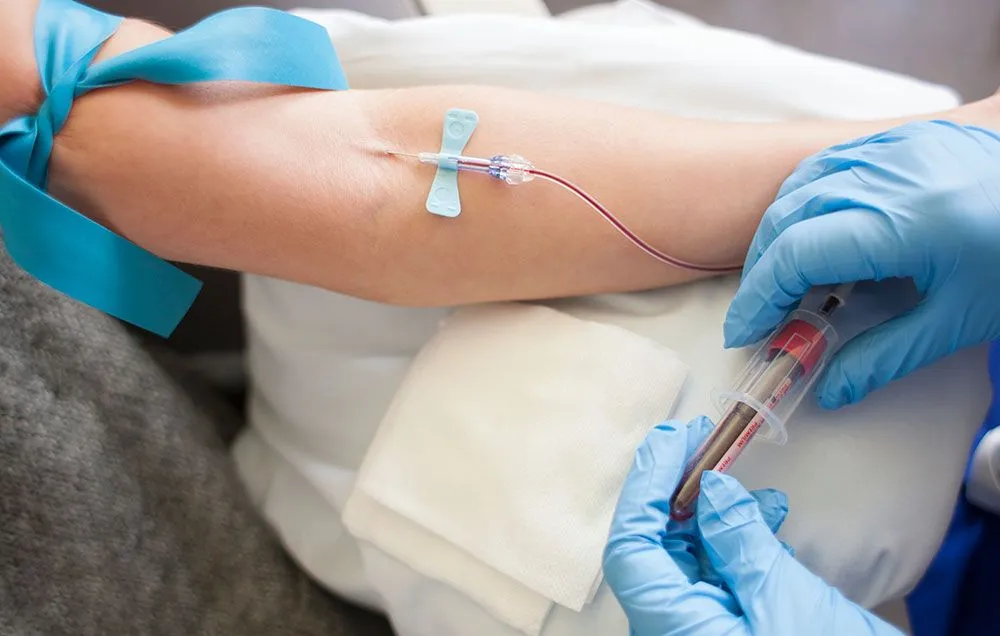Effective Home Remedies for Dry Cough

Are you having a dry cough or sore throat? Do you want to know small and easy home remedies that can ease your soreness and irritation? We will discuss several soothing solutions, for example, the preparation of several multiple liquid solutions, steam methods, and tea brewing methods to reduce the inflamed mucosa of the respiratory tract. These are very old and effective modes of therapy, also known as ancient herbal treatment. Learning the basics, and improving your lifestyle by preventing severe antibiotics, and antivirals for simple complications like a dry cough. In this blog, we will learn all about how to effectively treat yourself for a dry cough. Dry Cough Dry cough is a type of car that doesn’t produce phlegm or sputum. Etilogy Or Causes The dry cough is persistent and longer. It may have many different etiologies, but the most common ones are colds, GERD, gastroesophageal reflux disease, asthma, allergies, COPD, or common obstructive pulmonary disease. Another name for a dry cough is an ineffective cough. A dry cough cannot clear your lungs or nasal passages of mucus, phlegm, or allergens, in contrast to a productive wet cough. Weeks after contracting the flu or a cold, you may still have a dry cough. It can be a long-lasting condition that might be caused by exposure to different smoke, cigarettes, or others. Effective Home Remedies for Dry Cough There are several home remedies, which can easily be synthesized at home. These contain multiple benefits and are used for soothing your sore throat. 1. Honey Honey is a compound extracted from the honeycomb after the synthesis of honey by the bees. Honey has the microbial property that reduces the growth of bacteria in the throat, along with anti-microbial properties it also possesses some phytochemicals that help in the reduction of the infection development. Honey can reduce the cough reflex as it has the property to produce excessive saliva inside the mouth, thereby reducing the risk of coughing. Preparation Of Honey Based Home Remedy The following are the steps by which you can prepare honey-based home remedies: Add 1-2 tbsp of honey. Add 1 tsp of fresh lemon juice for vitamin C. This is optional but can enhance the therapy. Pour 1 cup of warm water into the cup, not too hot. Spoon the mixture using a spoon. Consume this blend once or twice a day. Use this treatment as a general immune system booster or to relieve a sore throat or cough. 2. Salt The salt helps pull out mucus and fluids from swollen throat tissues, cleansing irritants and providing soothing relief. Saltwater draws moisture away from the region of soreness to aid reduce swelling and irritation. Throughout the day, gargle with the solution many times to clear the throat, remove allergens, and provide momentary relief from coughing. Preparation Of Salt Based Home Remedy The following are the steps by which you can prepare salt-based home remedies: To use this cure, mix one cup of warm water with one-fourth teaspoon of salt, and drink it periodically. 3. Ginger Ginger is a very good remedy for reducing the cough as it relaxes the airway muscles and induces mucus excretion through the air pathway. The anti-inflammatory action of ginger also reduces the coughing discomfort and inflammation in the muscle wall and mucosal wall of the airway tract. Preparation Of Ginger Based Home Remedy The following are the steps by which you can prepare ginger-based home remedy: Take a slice of ginger and cut it into fine pieces. Boil 2 cups of water. Add the ginger to the boiling water. Let it steam for about 5-10 minutes. Add honey and lemon juice to the ginger-infused water. 4. Turmeric Turmeric contains curcumin, which has anti-inflammatory, antiviral, and antibacterial properties. It may help soothe dry coughs. Curcumin is an important anti-inflammatory organic molecule that is present inside the turmeric seed. It is a great mediator that helps in the reduction of inflammation from the mucosa of the respiratory tract. It has a mucolytic which is defined as the process of removal of the excessive mucus easily from the throat. Hot turmeric based on the concoction of which beverage you are using can also reduce irritation and provide smoothness to your throat. Preparation Of Turmeric Based Home Remedy The following are the steps by which you can prepare turmeric-based home remedy: Mix turmeric powder with a mug of milk in a pot. Heat on low. Add honey for sweetness. Sprinkle a pinch of black pepper and stir. Pour into a mug and enjoy the warm, golden milk. 5. Steam In some cases, people also use steam to relieve the pain of the throat a traditional method to relieve inflamed mucosa. Sometimes it is also suggested to drink a glass of warm water to go down and prevent the hydration which also helps in reducing the inflammation. Preparation Of Steam Based Home Remedy The following are the steps by which you can prepare steam-based home remedy: Take a large bowl with hot water and boil it at its maximum range. Add essential oils, and different herbs like eucalyptus, and rosemary. Take a bowl, and a towel, cover your head with the towel, and breathe for five to ten minutes. 6. Thyme Thyme is a herb that has been traditionally you for medical purposes such as cough and respiratory issues as it contains a compound like thymol which processes anti-inflammatory properties as well as antispasmodic properties. The antispasmodic property of thyme allows the muscles of the respiratory tract to relax by reducing the amount of cough produced by an individual. Additionally, thyme possesses anti-microbial and anti-inflammatory properties, which lessen inflammation and the likelihood of respiratory infections. Preparation Of thyme Based Home Remedy The following are the steps by which you can prepare the thyme-based home remedy: Take some fresh thyme leaves, and pour them into hot water. Add honey for flavor Infuse some herbs in the hot water to add the essence Steam the hot water for
A Practical Guide to Locating STD Testing Facilities in Your Area

In a world where sexual health is of paramount importance, finding a reliable and accessible STD testing facility is crucial. But with the multitude of options available, how do you ensure you’re making the right choice? Look no further. Our comprehensive guide will equip you with the knowledge and resources to locate the best STD testing facilities in your area, promoting a safer and healthier lifestyle. Whether you’re seeking testing for yourself or a partner, our guide will empower you to stay informed and take control of your sexual health. From providing a breakdown of the different types of STD tests available, to explaining the importance of regular screenings, we leave no stone unturned in helping you navigate this sensitive topic. Don’t let uncertainty and fear hold you back. With our practical tips and advice, you can confidently locate STD testing facilities that provide accurate and confidential results, ensuring peace of mind and taking proactive steps towards protecting yourself and your loved ones. The Importance of STD testing Getting tested for STDs is vital for maintaining your overall health and well-being. Many STDs show little to no symptoms, making it easy to unknowingly transmit the infection to others. Regular testing helps identify infections early, allowing for prompt treatment and prevention of further transmission. Types of STDs and their prevalence There are numerous types of STDs, each with its own set of symptoms and health risks. Some of the most common STDs include chlamydia, gonorrhea, syphilis, herpes, human papillomavirus (HPV), and HIV/AIDS. Understanding the prevalence of these infections can help you assess your own risk factors and prioritize testing. Chlamydia, for example, is the most common bacterial STD. Gonorrhea and syphilis, although less common, still pose a significant public health concern. By familiarizing yourself with the prevalence of these infections, you can make informed decisions about your sexual health. Signs and symptoms of common STDs Recognizing the signs and symptoms of common STDs is crucial for early detection and treatment. While some infections may not cause noticeable symptoms, others can result in discomfort, pain, and long-term health complications if left untreated. Chlamydia and gonorrhea, for instance, often present with symptoms such as unusual discharge, pain during urination, and pelvic pain. Syphilis can manifest in several stages, each with its own distinct symptoms. Understanding these signs can prompt you to seek testing even in the absence of symptoms, ensuring timely intervention. Why you should get tested regularly Regular STD testing is essential, regardless of your perceived risk factors or sexual activity. Many STDs can remain asymptomatic for extended periods, making it difficult to know whether you or your partner are infected. By getting tested regularly, you can detect infections early and prevent the spread of STDs to others. Additionally, if you engage in high-risk behaviors such as unprotected sex with multiple partners or intravenous drug use, regular testing becomes even more critical. By maintaining a routine testing schedule, you can stay proactive about your sexual health and reduce the potential risks associated with undiagnosed STDs. How to find STD testing facilities in your area Locating STD testing facilities in your area may seem daunting, but it doesn’t have to be. Start by conducting a simple online search using relevant keywords such as “STD testing near me” or “std testing at home in Dubai.” This will provide you with a list of local facilities that offer testing services at home and in person. You can also consult local health departments, community organizations, or healthcare providers for recommendations. They often have resources and information regarding reliable testing facilities in your area. Additionally, consider reaching out to trusted friends or family members who may have previously used testing services for their recommendations. Factors to consider when choosing an STD testing facility When selecting an STD testing facility, several factors should be considered to ensure you receive accurate and reliable results. First and foremost, verify that the facility is licensed and accredited by DHA. This ensures compliance with quality and safety standards, as well as confidentiality and privacy protocols. Additionally, assess the facility’s reputation and reviews from previous clients. Look for testimonials that highlight the professionalism, accuracy, and promptness of their services. Consider the facility’s proximity to your home or workplace, as this can impact your ability to schedule and attend appointments. What to expect during an STD testing appointment Knowing what to expect during an STD testing appointment can help ease any anxiety or apprehension you may have. At Vesta Care, our nurse would reach your location within 45 minutes to collect the sample. We have the most extensive list of STD Packages available in Dubai. Depending on the type of test recommended, you may undergo a blood test, urine test, swab test, or a combination of these. The procedure itself is relatively quick and painless, and healthcare professionals prioritize your comfort and privacy throughout the process. Once the samples are collected, they are sent to a laboratory for analysis, and you’ll receive your results within a specified timeframe. Understanding the different types of STD tests There are various types of STD tests available, each designed to detect specific infections. Common tests include nucleic acid amplification tests (NAATs), enzyme-linked immunosorbent assays (ELISAs), and polymerase chain reaction (PCR) tests. Understanding the purpose and accuracy of each test can help you make informed decisions about your testing options. NAATs, for example, are highly sensitive and specific tests that detect genetic material from STD-causing organisms. ELISAs, on the other hand, detect antibodies produced by the immune system in response to an infection. By familiarizing yourself with these tests, you can discuss the most suitable options with your healthcare provider. How to prepare for an STD test Preparing for an STD test is relatively straightforward. Depending on the type of test, you may be advised to refrain from urinating for a few hours prior to the appointment or avoid sexual activity for a specific period. It’s essential to follow any pre-test instructions provided by the facility to ensure
Convenient and Reliable Laboratories for Blood Work Near Me

Looking for convenient and reliable laboratories for blood work near you? Look no further! We understand the importance of accurate and timely results when it comes to your health. That’s why we’ve compiled a comprehensive guide for you to choose the best laboratory in your area. Our brand, Vesta Care, is committed to helping you make informed decisions about your healthcare. With just a few clicks, you can easily locate a provider near you that offers the best services you need. Whether you require routine blood tests or more specialized diagnostics, our curated database ensures you have access to the best facilities. At Vesta Care, we prioritize convenience and reliability. Our partner lab is equipped with state-of-the-art technology and staffed by experienced DHA Licensed professionals who prioritize patient care. Rest assured, you can trust the accuracy and precision of the results provided. Our goal is to help you maintain optimal health and well-being. Don’t waste time searching for laboratories for blood work near me. Let us simplify the process and help you find the most convenient and reliable options. Start your search now and take control of your health today with Vesta Care. Importance of blood work Blood work plays a crucial role in maintaining good health and preventing potential health issues. It provides valuable insights into your overall health and helps identify any underlying conditions or abnormalities that may need attention. By analyzing various components of your blood, healthcare professionals can assess your organ function, detect infections, monitor medication effectiveness, and screen for diseases such as diabetes, high cholesterol, and cancer. Getting regular blood work done is a proactive approach to managing your health. It allows you and your healthcare provider to monitor any changes over time, catch potential issues early on, and take appropriate measures to prevent or treat them. Regular blood work can help you stay on top of your health and make informed decisions regarding your lifestyle, diet, and treatment plans. Additionally, blood work is often a crucial step before undergoing surgeries, starting certain medications, or participating in clinical trials. It helps ensure that you are in optimal health and minimizes the risk of complications. Therefore, it is essential to find convenient and reliable laboratories for blood work near you to ensure accurate results and timely diagnoses. What is blood work? Blood work, also known as a blood test or blood panel, is a medical procedure that involves analyzing a sample of your blood to evaluate your overall health and diagnose any potential conditions or diseases. It involves collecting a small amount of blood through a needle or a finger prick and sending it to a laboratory for analysis. The laboratory technicians then examine the sample and provide a detailed report of the findings. Blood work can encompass a wide range of tests, depending on the specific requirements and concerns of the patient. These tests can measure various components of your blood, such as red and white blood cell counts, platelet levels, glucose levels, cholesterol levels, liver function, kidney function, hormone levels, and more. The specific tests conducted will depend on your symptoms, medical history, and the recommendations of your healthcare provider. By analyzing the results of blood work, healthcare professionals can gain valuable insights into your overall health, detect any abnormalities, and make informed decisions regarding your treatment or further diagnostic tests. It serves as a valuable tool for both preventive care and disease management. Benefits of getting blood work done Regular blood work offers numerous benefits for your health and well-being. Here are some key advantages of getting blood work done: 1. Early Detection of Diseases: Blood work can help detect diseases and conditions at an early stage when they may be more easily treatable. For example, blood tests can identify high cholesterol levels, indicating an increased risk of heart disease. Early detection allows for timely intervention and appropriate treatment. 2. Monitoring Chronic Conditions: If you have a chronic condition such as diabetes or hypertension, regular blood work is essential for monitoring the effectiveness of your treatment and ensuring your condition is well-managed. By measuring blood sugar levels, kidney function, and other relevant markers, blood work helps healthcare providers make necessary adjustments to your treatment plan. 3. Assessing Organ Function: Blood work provides insights into the functioning of vital organs such as the liver, kidneys, and thyroid. Abnormalities in liver enzyme levels or kidney function markers can indicate underlying issues that require further investigation. Blood work helps identify potential problems before they cause significant damage. 4. Tracking Medication Safety: Certain medications require regular blood work to monitor their safety and effectiveness. For instance, blood thinners like Warfarin require frequent monitoring to ensure the dosage is appropriate and to prevent any adverse reactions. Blood work helps tailor the medication dosage to your specific needs. 5. Preventive Care: Blood work is an integral part of preventive care. It helps identify risk factors for various diseases, such as high cholesterol levels indicating a higher risk of cardiovascular disease. Armed with this knowledge, you can make lifestyle changes or start treatment early to reduce your risk. In summary, getting blood work done offers numerous benefits, including early detection of diseases, monitoring chronic conditions, assessing organ function, tracking medication safety, and preventive care. Regular blood work allows you and your healthcare provider to take proactive steps towards maintaining optimal health. Common Types of Blood Tests Blood tests encompass a wide range of tests, each serving a specific purpose and providing valuable insights into your health. Here are some common types of blood tests you may encounter: Complete Blood Count (CBC): A CBC Test measures the number of red and white blood cells, hemoglobin levels, hematocrit, and platelet count. It helps assess overall health, detect infections, anemia, and blood disorders. Basic Health Checkup: A Basic Health Checkup measures blood glucose levels, electrolyte balance (sodium, potassium, chloride), kidney function (creatinine, blood urea nitrogen), and liver function (bilirubin, liver enzyme levels). Lipid Panel: A lipid panel measures cholesterol levels, including total
Allergies vs Intolerances: What is the difference?

Navigating the world of food can be tricky, especially if you experience discomfort after consuming certain things. While you might suspect an allergy, it is crucial to understand the difference between an allergy and an intolerance before jumping to conclusions. This blogs aims to demystify these terms, highlighting the key distinctions, while unveiling ways to manage your unique situation effectively. What is Food Intolerance? When you have a food intolerance, it means your digestive system has a hard time digesting (breaking down) a food. Another word for food intolerance is food sensitivity. Food intolerance means your gut is sensitive to certain foods and can’t tolerate them. When you eat these foods, you may experience uncomfortable symptoms like gas, diarrhea and abdominal pain. What is the difference between: Food Intolerance & Allergy Food intolerance, or food sensitivity, is not the same thing as having a food allergy. A food Intolerance: Affects your digestive system. Occurs when your digestive system can’t break down certain foods. Causes symptoms like an upset stomach that aren’t life-threatening. Brings on symptoms within a few hours after eating as the food makes its way through the digestive tract. May not cause symptoms if you eat just a small amount of a food. A food Allergy: Affects the immune system. Occurs when your immune system mistakes a protein or other ingredient in food as a threat. Your immune system releases antibodies (proteins) called immunoglobulin E (IgE) to fight the threat. Causes an allergic reaction, such as hives and swelling, shortness of breath or wheezing. Brings on symptoms within minutes of consuming even a small amount of an allergy-inducing food. May cause a severe, life-threatening reaction called anaphylaxis. Without an epinephrine treatment, this reaction can be fatal Reactions Producing an Immune Response The reactions that trigger an immune response are most often referred to as allergies. The most common ones are classed as follows: Type I (IgE reaction) This is also known as an IgE mediated allergy, Type | hypersensitivity reaction, “true” or “classical” allergy. Such a food allergy produces an immediate adverse reaction; i.e. within seconds or minutes after ingestion of certain foods (for example peanuts and shellfish) and produces symptoms such as rashes, sneezing, difficulty in breathing, and for some people can even be life threatening because of an anaphylactic shock. It is usually obvious which foods are responsible for a food allergy and these have to be avoided for the rest of your life Type III (IgG reaction) This is also known as IgG mediated reaction, Type Ill allergy, delayed onset, hypersensitivity/food sensitivity, however it is more commonly referred to as food intolerance. This is the type of reaction that is measured in your Food Intolerance Tests processed by our Medical Laboratory and delivered at Home by Vesta Care. Food intolerances are associated with a range of symptoms that are caused by chronic inflammatory processes. The onset of symptoms is within hours or days after ingestion of the food. Symptoms include anxiety, depression, IBS, headaches/ migraines, fatigue, hypertension, eczema, hypothyroidism, asthma, joint paint, chronic rhinitis, arthritis, weight problems and fibromyalgia. The good news is that with a food intolerance, it is possible to eliminate the food from the diet for a period of time and then to re-introduce them gradually back into the diet after an improvement in symptoms. Reactions that DO NOT produce an Immune Response Those reactions that do not produce an immune response are most often referred to as intolerances. An example of this type of reaction is an enzyme deficiency such as: Lactose intolerance which is due to a deficiency of the enzyme lactase. Symptoms include bloating, excessive wind, diarrhea and stomach pains. Histamine intolerance which is due to the deficiency or inhibition of the enzyme diamine oxidase, DAO. Symptoms include migraines, headaches, dizziness, bowel/ stomach problems, rhinitis, depression, irritation or reddening of the skin. Foods containing histamine include red wine, cheese, tuna fish or chocolate and citrus fruits. Gluten intolerance is due to the adverse reactions against the protein found in wheat, rye and barley. Gluten sensitivity isn’t the same as having celiac disease, a type of autoimmune disease. When you have celiac disease, gluten damages the small intestines. If you have a non-celiac gluten sensitivity, your body has a harder time digesting gluten. What are the Symptoms of a Food Intolerance? Symptoms of a food intolerance include: Abdominal (belly pain) Heartburn Headaches or migraines Diarrhea/upset stomach Gas and bloating Nausea What Causes Food Intolerance? People with food intolerances often don’t make enough of a particular enzyme that the digestive system needs to break down a certain food or ingredient. Experts aren’t sure why some people develop food intolerances. Certain gastrointestinal conditions may make you more prone to food sensitivities. These conditions include: Celiac disease Inflammatory bowel disease (IBD), including Crohn’s disease and ulcerative colitis. Test Now and plan your diet There are a number of tests and methodologies available, easily and affordably, at your disposal today to address the issue of food intolerance. In any case, it is recommended to seek consultation from licensed medical facilities in your search for the root causes of a food intolerance! At the end, these are tests performed by licensed medical laboratories and results explained by licensed physicians and clinical pathologists. A comprehensive Food Intolerance IgG test will measure your sensitivity to hundreds of foods and will suggest ways in which a change of diet can improve your quality of life while consuming food.
